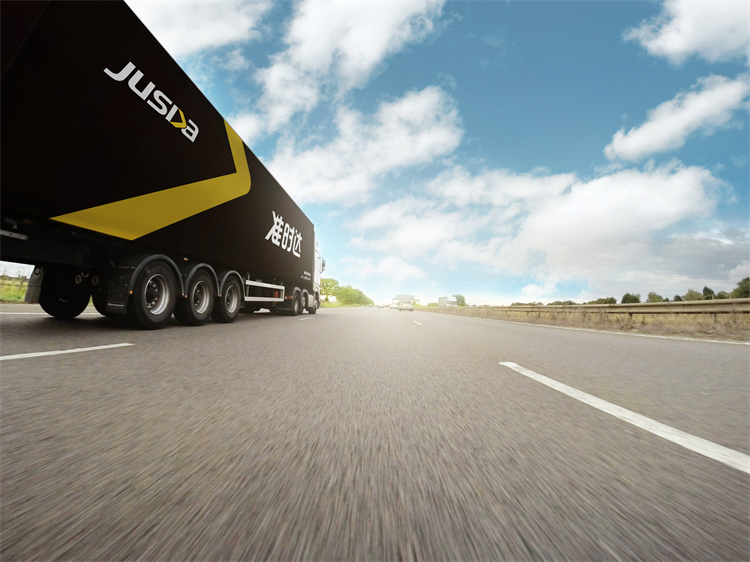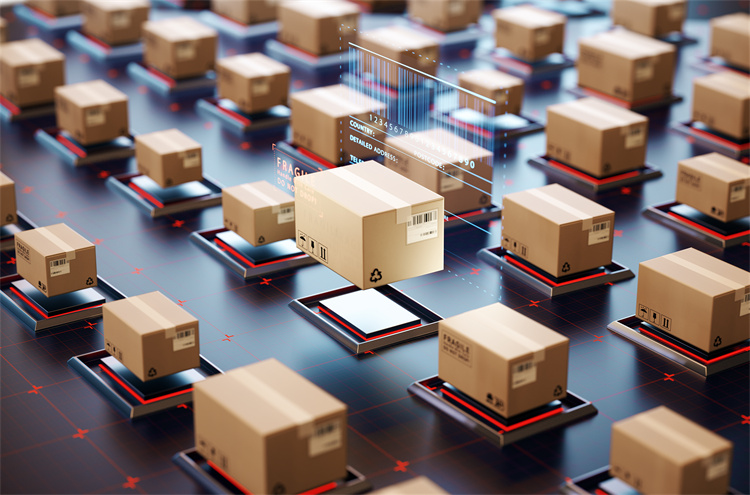Understanding the Latest Trucking Industry Trends

Staying updated with the latest trends in the trucking industry is crucial for you. This sector plays a vital role in the economy, constantly evolving to meet new challenges. Technological advancements, such as automation and safety technology, are transforming operations. Regulatory changes continue to adapt, addressing safety and environmental concerns. Market dynamics shift with consumer demands and sustainability measures. By understanding these trends, you can navigate the industry's complexities and seize opportunities for growth.
Current Trends in the Trucking Industry

Technological Advancements
Automation and Autonomous Trucks
Automation is transforming the trucking industry. Autonomous trucks promise to revolutionize freight transportation by enhancing efficiency and safety. These vehicles use advanced technologies like artificial intelligence to navigate roads without human intervention. You can expect these innovations to reduce operational costs and address driver shortages.
Telematics and Fleet Management Systems
Telematics systems are crucial for modern fleet management. They provide real-time data on vehicle location, speed, and performance. By using telematics, you can optimize routes, improve fuel efficiency, and enhance driver safety. This technology helps you make informed decisions, ensuring your fleet operates smoothly.
Regulatory Changes
Environmental Regulations
Environmental regulations are evolving rapidly. Governments worldwide are implementing stricter emissions standards to combat climate change. As a trucking professional, you must adapt to these changes by investing in eco-friendly technologies. Electric and hydrogen fuel trucks are becoming more prevalent, helping you meet these new requirements.
Safety Standards and Compliance
Safety standards are a top priority in the trucking industry. New regulations focus on reducing accidents and ensuring driver well-being. Compliance with these standards is essential for your business. By staying informed and implementing necessary measures, you can maintain a safe and efficient operation.
Market Dynamics
Supply Chain Disruptions
Supply chain disruptions have become a significant challenge. Factors like global trade policies and economic shifts impact the availability of goods. You need to develop strategies to mitigate these disruptions. Flexibility and adaptability are key to maintaining a steady flow of operations.
E-commerce and Last-Mile Delivery
E-commerce growth has reshaped the trucking landscape. The demand for last-mile delivery services is increasing as consumers expect faster shipping times. You must adapt to this trend by optimizing logistics and embracing innovative solutions. Efficient last-mile delivery can give you a competitive edge in the market.
Future Outlook and Predictions

Emerging Technologies
Electric and Hydrogen Fuel Trucks
Electric and hydrogen fuel trucks represent the future of the trucking industry. These vehicles offer a cleaner alternative to traditional diesel trucks. You will find that electric trucks produce zero tailpipe emissions, significantly reducing the carbon footprint. This shift not only benefits the environment but also enhances public health by minimizing air pollution. Electric trucks also provide better energy efficiency, which can lead to cost savings in the long run.
Hydrogen fuel trucks, on the other hand, offer a promising solution for long-haul routes. They can refuel quickly and have a longer range compared to electric trucks. By adopting these technologies, you can align with global sustainability goals and meet stricter environmental regulations. The transition to electric and hydrogen fuel trucks will likely become a key trend in the trucking industry.
Blockchain in Logistics
Blockchain technology is set to revolutionize logistics within the trucking sector. This technology provides a secure and transparent way to track shipments and manage transactions. You can use blockchain in logistics to enhance supply chain visibility, ensuring that all parties have access to real-time data. This transparency reduces the risk of fraud and errors, leading to more efficient operations.
By implementing blockchain, you can streamline processes such as invoicing and payments. This technology also facilitates better collaboration among stakeholders, improving overall supply chain efficiency. As blockchain becomes more prevalent, you will see significant improvements in the reliability and speed of logistics operations.
Economic and Market Forecasts
Impact of Global Trade Policies
Global trade policies play a crucial role in shaping the trucking industry. Changes in tariffs and trade agreements can directly impact freight demand and costs. You need to stay informed about these policies to anticipate market shifts. Understanding the implications of trade policies helps you make strategic decisions and adapt to new market conditions.
Trade tensions or agreements can affect the flow of goods, influencing trucking routes and demand. By keeping an eye on global trade developments, you can better position your business to navigate potential challenges and seize opportunities.
Trends in Freight Rates and Demand
Freight rates and demand are influenced by various factors, including economic conditions and consumer behavior. You may notice fluctuations in freight rates due to changes in fuel prices, driver wages, and supply chain disruptions. Monitoring these trends allows you to adjust pricing strategies and optimize operations.
The rise of e-commerce continues to drive demand for trucking services, particularly in last-mile delivery. You should focus on enhancing logistics capabilities to meet this growing demand. By staying agile and responsive to market trends, you can maintain a competitive edge in the trucking industry.
Case Study: JUSDA Trucking
Overview of JUSDA Trucking
Company Background and History
JUSDA, a prominent player in the logistics sector, originated in China. The company has grown into a global supply chain service provider with over 155 service points worldwide. You will find that JUSDA's extensive network supports various transportation modes, including air, land, sea, and rail. The company's commitment to innovation and efficiency has positioned it as a leader in the trucking industry.
Key Services and Operations
JUSDA offers a comprehensive range of services tailored to meet diverse client needs. These include air transport, land transport, ocean shipping, and rail transport. Additionally, JUSDA provides value-added services like cloud warehousing and consolidation. By leveraging advanced technologies, JUSDA enhances supply chain visibility and collaboration, ensuring efficient operations across the board.
Implementation of Industry Trends
Adoption of New Technologies
JUSDA has embraced cutting-edge technologies to stay ahead in the trucking industry. The company utilizes telematics and fleet management systems to optimize routes and improve fuel efficiency. By integrating IoT, cloud computing, and big data, JUSDA's JusLink intelligent supply chain facilitates real-time collaboration. This technological adoption not only enhances operational efficiency but also reduces costs across the supply chain.
Strategies for Regulatory Compliance
Regulatory compliance remains a priority for JUSDA. The company actively adapts to evolving environmental regulations by investing in eco-friendly technologies. Electric and hydrogen fuel trucks form part of JUSDA's strategy to meet stricter emissions standards. By staying informed and implementing necessary measures, JUSDA ensures compliance with safety standards, maintaining a safe and efficient operation.
Results and Impact
Operational Efficiency Improvements
As a result, JUSDA achieves significant cost savings across its supply chain. This efficiency translates into reliable and timely services for clients, enhancing overall customer satisfaction.
Market Position and Competitive Advantage
By leveraging advanced technologies and maintaining regulatory compliance, JUSDA strengthens its market position. The company's ability to adapt to industry trends gives it a competitive edge in the trucking sector. Improved communication and problem-solving capabilities further enhance JUSDA's reputation as a leading logistics provider. You can see how JUSDA's strategic approach positions it as a key player in the global trucking industry.

JUSDA Solutions
To provide you with professional solutions and quotations.
Understanding the latest trends in the trucking industry is essential for staying competitive. Key trends include technological advancements, regulatory changes, and shifting market dynamics. These elements drive the industry's evolution.
Technological Advancements: Embrace automation and telematics to enhance efficiency.
Regulatory Changes: Stay informed about environmental and safety standards.
Market Dynamics: Adapt to e-commerce growth and supply chain disruptions.
"The ability to embrace change, leverage new technologies, and anticipate future developments will be crucial for long-term success."
You must adapt and innovate to thrive in this dynamic landscape.
See Also
Ready to Explore: The Latest in Supply Chain Transport Tech
Unlocking Potential: Demystifying AI in Logistics
Understanding Effects: Trends in Logistics Risks
